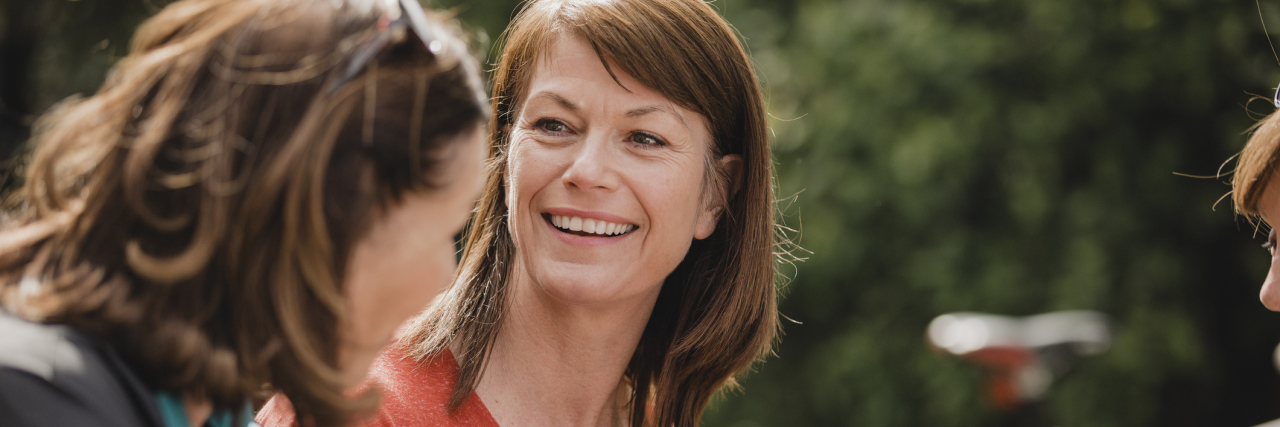10 Things That Can Help You Cope With Your New Diagnosis of Parkinson's Disease
Many bloggers write about what you can do to cope with a new diagnosis of Parkinson’s disease. We all have a different take on the issue, so if you have just been diagnosed, look for other blogs with similar titles. As they say in the Parkie world, we are like snowflakes, no two of us are alike. Each one of us has different symptoms and responds differently to medications and therapy. By reading several different blogs, you will get a broader perspective about your new companion, PD, which will be at your side for many years to come. So here are some of my suggestions for living well with Parkinson’s.
What is Parkinson’s Disease?
You have just been diagnosed. You walk out of the doctors office in a state of shock and the reality of it doesn’t sink in until after you get home. So many unanswered questions and your next appointment is six months or more away. What can you do?
Well, there are actually a lot of things that you can do before you see your doctor that will help you understand your new constant companion and to feel better about it. Before you do anything else, try to make a follow-up appointment sooner if possible. Make sure that you bring someone with you who can help ask questions and take notes for you. Prepare a list of questions to take with you. We all forget to ask key questions if we don’t write them down. Click here for a worksheet from Health Monitor that you can use (scroll down the page to get to it).
Here are my 10 recommendations for the newly diagnosed:
1. Exercise. I can’t stress this enough. Exercise has been shown to be the most effective way to combat the effects of PD. If you are already exercising, good for you. See if you can increase your level of activity – the more you push yourself, the better the results. If you have not been exercising, start slowly. Walk around the block. Add distance and speed as it becomes more comfortable for you. Add different types of exercise to your routine. Varying what you do on a daily basis is good for your brain and your body. Most importantly, find what you enjoy doing. If you don’t like it, you won’t do it. My exercise routine is a combination of Boxing for PD, regular yoga classes, tennis and a Peloton bike.
2. Continue to do what you did before your diagnosis. PD may eventually slow you down, but for now, don’t let it stop you.
3. A good diet. Check Dr. Laurie Mischley’s research for recommendations for a Parkie diet.
4. Get out of the house. Some research has suggested that loneliness is an important predictor of a rapid decline with PD.
5. Find a mentor with PD. Ask your doctor if he/she can recommend someone living well with Parkinson’s who you can talk to. We have all been in your shoes and understand what you are going through. A mentor can answer your questions and be there for you when you need a friend.
6. Go to a support group. This may not be your thing, but try it anyway. There are a lot of different types of support groups out there and you may find new friends with PD who will become your support system.
7. Find a class for Parkies – boxing, dance, yoga, etc. The best way, in my opinion, to find your way through the maze of PD. The people you meet in these classes will become an important part of your support system. They know what you are going through. It also keeps you from being isolated (see #3) and gives you something to look forward to.
8. Go online and look for a few blogs and websites that you can trust and relate to. Beware of those trying to sell you a “cure.” Some good websites to start with are Michael J. Fox Foundation, Parkinson’s Foundation and Davis Phinney Foundation.
9. Read a good book about PD. Two books I will recommend you start with are “Parkinson’s? You’re Kidding Me, Right? One Woman’s Unshakeable Belief in Overcoming a Shaky Diagnosis!“ by Sheryl Jedlinski and “Brain Storms: The Race to Unlock the Mysteries of Parkinson’s Disease“ by Jon Palfreman. And order “Every Victory Counts” from the Davis Phinney Foundation. It is free and a good resource.
10. Go to an educational program about PD. The three foundations above all sponsor educational programs, as well as The American Parkinson’s Disease Association and local Parkinson’s groups.
I hope that this will help. The most important thing for you to know is that you are not alone on your journey with PD. Don’t hesitate to reach out to me or to others with Parkinson’s disease. We are there to help you.
This story originally appeared on Twitchy Woman.
Getty photo by DGLimages

